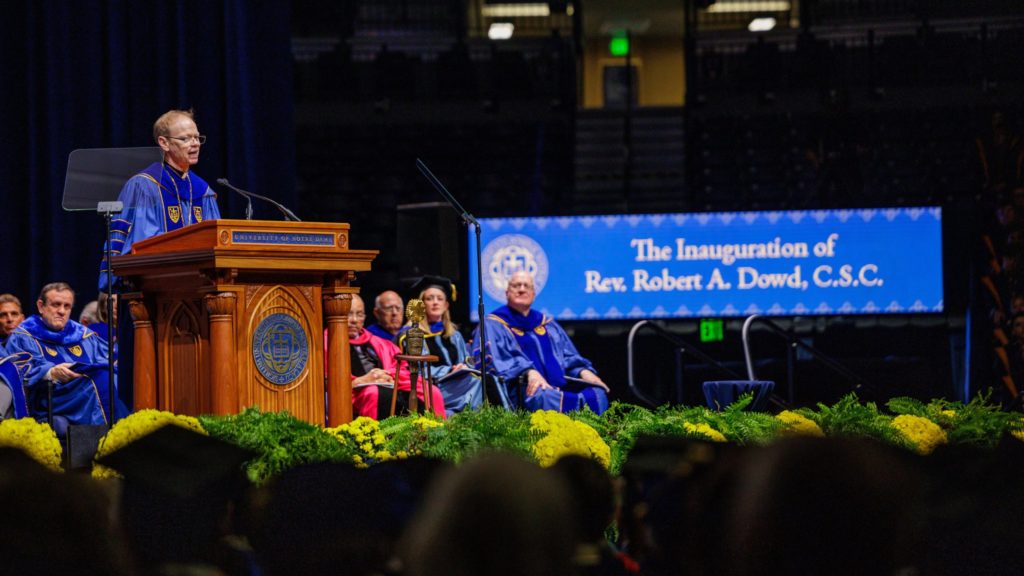With student loan debt soaring, the University of Notre Dame has unveiled a new "no-loan policy" for undergraduate students, while also expanding its need-blind admissions policy to include domestic and international students.
Holy Cross Father Robert A. Dowd, who took office as the school's 18th president July 1, announced the "Pathways to Notre Dame" initiative during his Sept. 13 inauguration address.
The school said in a statement that as part of the "historical financial aid commitment," student loans will be replaced by gift aid in financial aid packages for full-time first-year and transfer undergraduate students entering the school in fall 2025. Families can still opt to augment the packages with federal student or private loans.
Additionally, the school will extend its need-blind policy -- by which an applicant's financial circumstances are not included in admissions decisions -- to all prospective students, regardless of their country of origin. Harvard University, Princeton University, Yale University and the Massachusetts Institute of Technology are among the top schools that also have need-blind policies as part of their admissions processes.
"We want an undergraduate student body that reflects the rich diversity of the Catholic community in and beyond the United States, which requires a Notre Dame education be both accessible and affordable," said Father Dowd, according to a Sept. 13 news release issued by the university.
Father Dowd, a Notre Dame alumnus, said the school was "profoundly grateful for the extraordinary generosity" of the benefactors who had made possible the initiative, which is effective immediately.
He described the move as an "important next step" for the school that would ensure "every student who is admitted will have the opportunity to attend the university, no matter their financial circumstances or where in the world they call home."
Currently, student loan debt in the U.S. totals over $1.7 trillion, representing 9% of the nation's consumer debt. As of June, 43.6 million people in the nation held federal student loan debt, with borrowers carrying a balance of $38,000 on average.
Student loan debt particularly impacts women and persons of color, with Black women more likely to shoulder greater debt for their education -- while gender and racial wage gaps result in longer payback periods for student loans for women and persons of color, according to research published by the Federal Reserve Bank of St. Louis.
Researchers said college debt, while it may be necessary to finance educations, "has consequences for career decisions, marital formation and fertility."

